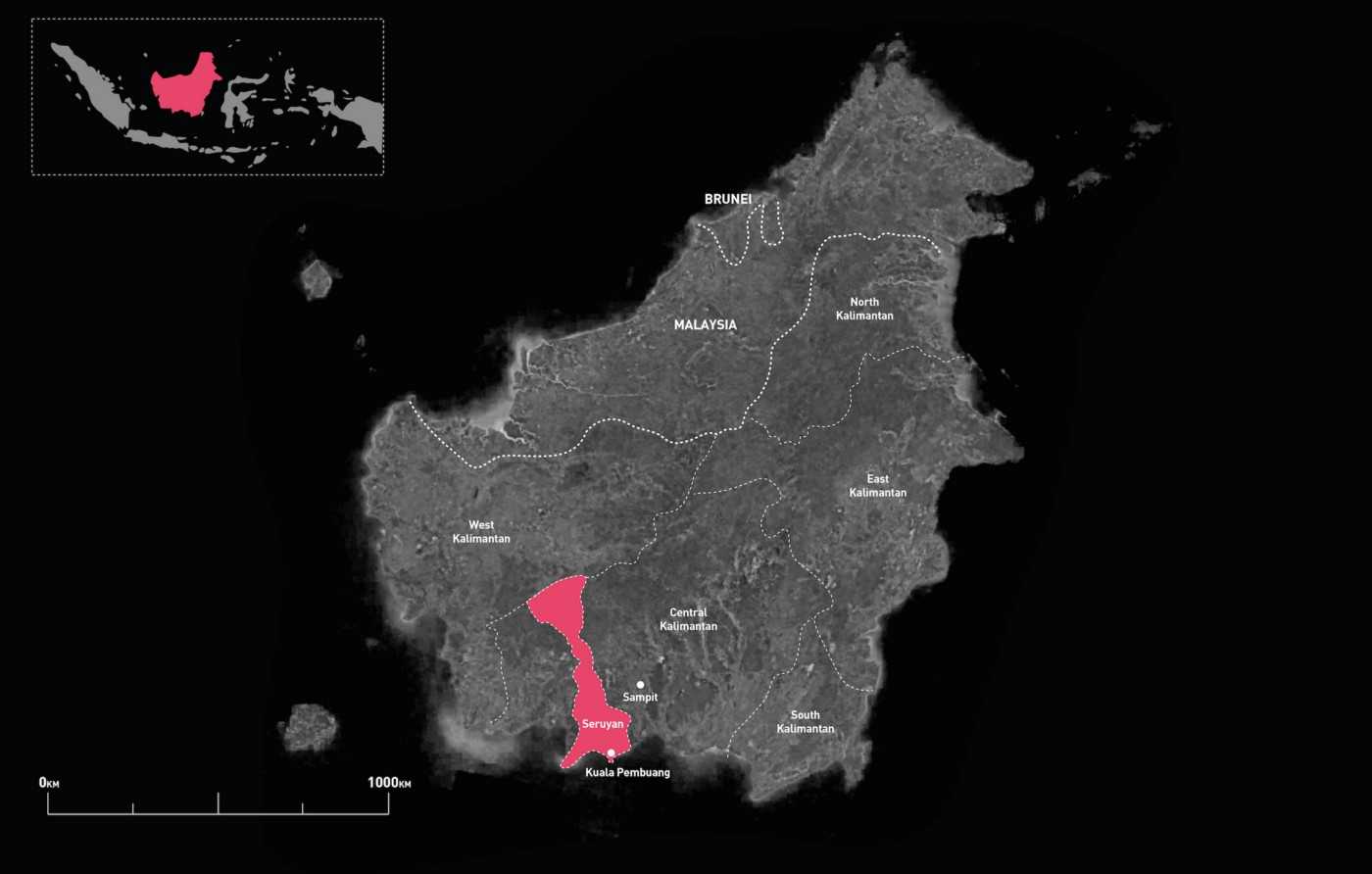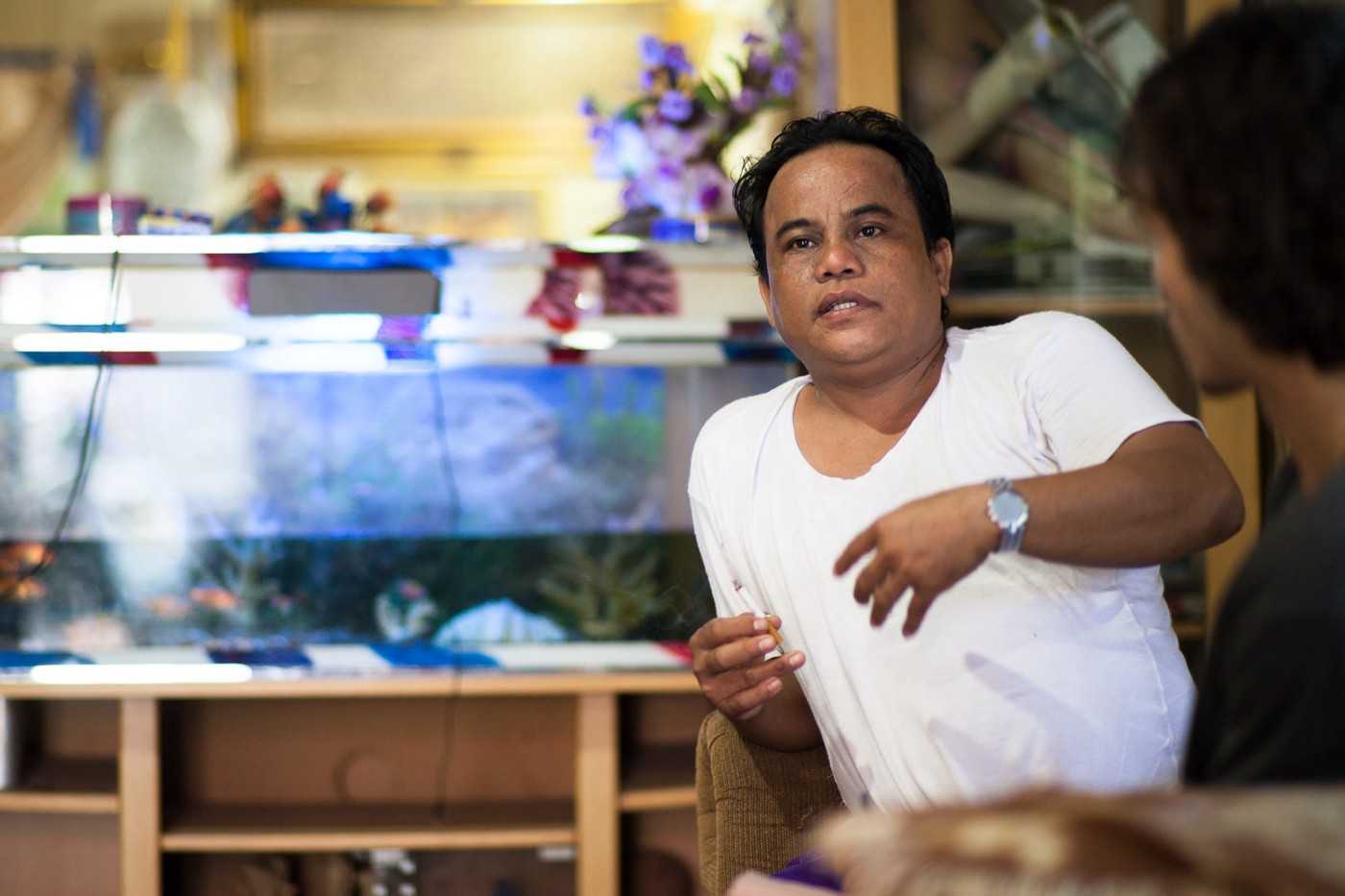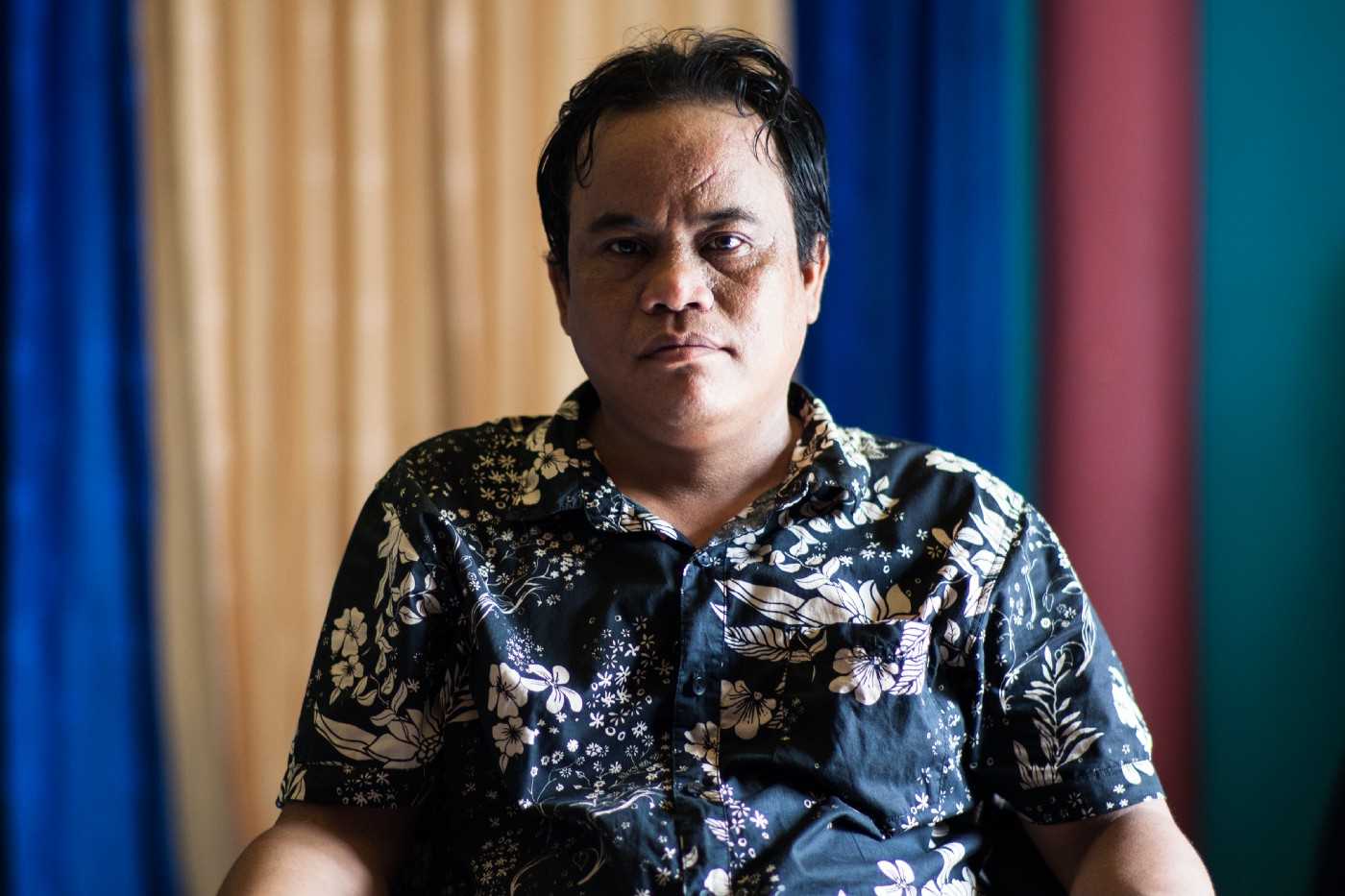Budiardi was one of the more colorful characters we met in our reporting for The making of a palm oil fiefdom.
Thickset and outspoken, he was previously a member of the local parliament in Indonesia’s Seruyan district. He said he had been inspired to enter politics because the district chief, Darwan Ali, had ceded huge swaths of land to plantation companies that acted with impunity.
In Hanau subdistrict, where Budiardi lived, residents had fallen into a bitter dispute with BEST Group, which had bulldozed into a national park home to thousands of endangered orangutans. Worse yet was how they treated the local people. “I’m from here, I know what they did,” Budiardi told us. “Evictions, seizing our land, right out in the open! We reported it everywhere and there was never any response.”

The conflict in Hanau is one of thousands that has erupted across the country since the beginning of Indonesia’s palm oil boom. After the dictator Suharto fell in 1998, power was decentralised from Jakarta to the regions, placing control over land and resources in the hands of district chiefs like Darwan Ali. Where Suharto had sent his cronies to log the forest, these officials, known as bupatis, assigned whole landscapes to plantation and mining firms. They developed a reputation for corruption rivaling that of Suharto, becoming known as “little kings.”
The Gecko Project and Mongabay investigated Darwan’s licensing spree, and found that he had presided over an elaborate scheme to use shell companies as vehicles for making money from major palm oil firms. These companies were set up in the names of his relatives and cronies, and received permits from the bupati himself before being sold to some of the industry’s biggest players. As the firms proceeded to clear lands claimed by indigenous and other rural communities, the farmers of Seruyan, many of whom had initially trusted in Darwan’s leadership, grew incensed with his rule.

Despite his anger, Budiardi wasn’t against the concept of palm oil. He had a smallholding of his own and drove a truck for one of the companies. But as the years went by and BEST Group continued to ignore their entreaties, Budiardi and his neighbors decided enough was enough. One day, a group of them attacked the plantation, using a rope and truck to tear out a handful of oil palm trees by the roots. “The police came that very day,” Budiardi said. “I wasn’t there, but I was labeled a ‘provocateur’ because in the dispute I was the one coordinating with the company.” He served four months in jail over the incident.
The farmers were granted some reprieve at the end of Darwan’s second and final term in 2013, when his son, running to replace his father, suffered a humiliating defeat at the hands of an independent candidate whose platform was aimed squarely at the palm oil industry. This year, however, Darwan’s daughter will become the latest member of the family to stand for the position, raising the specter of another era of their rule.
Watch our short film about Budiardi, below, to find out more. And then read our investigation into Darwan’s licenses, in English or Bahasa.

